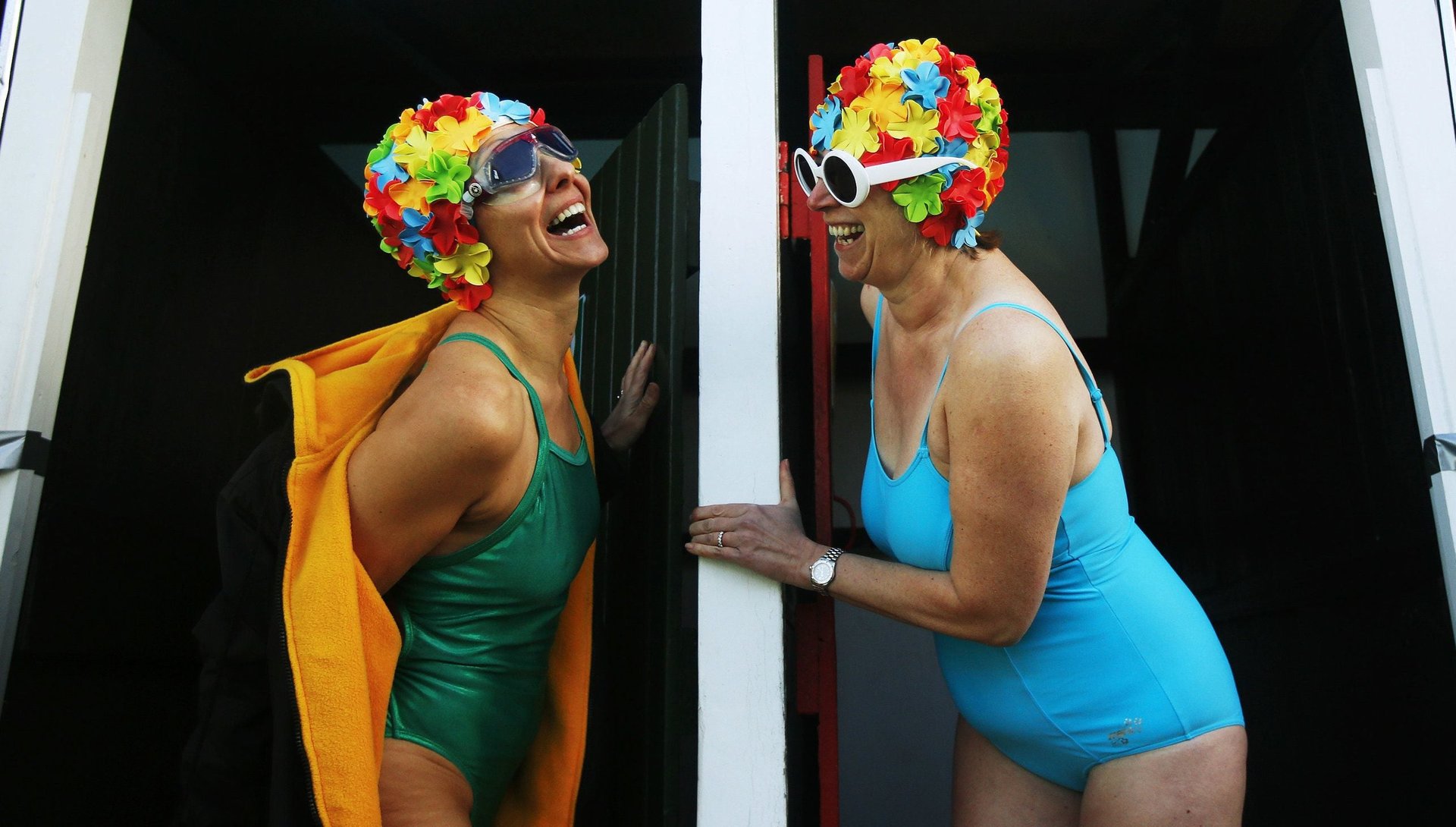The difference between looking extraordinary and being extraordinary
Social media is filled with people posting pictures of themselves in luxurious or exotic places, posing at their most flattering angle, and laughing with a gaggle of fabulous people. But we all know it ain’t so. The desire to constantly present an exaggerated and enviable existence while totally ignoring anything awkward or uncomfortable frequently rises to the point of obsession.


Social media is filled with people posting pictures of themselves in luxurious or exotic places, posing at their most flattering angle, and laughing with a gaggle of fabulous people. But we all know it ain’t so. The desire to constantly present an exaggerated and enviable existence while totally ignoring anything awkward or uncomfortable frequently rises to the point of obsession.
Throughout history there has always been pressure to compete using status symbols. But the ubiquity and relentlessness of social media makes it more important than ever to push back and intentionally create space for living an extraordinary life, as opposed to just looking like you do.

A couple of months ago, I was asked to speak in front of about 100 high-school seniors who were anxiously facing one of the most important transitions of their young lives. They were impressed by my background as a Paralympic skier, White House economic official, Rhodes Scholar, and CEO of my own business, and I happily filled them with as much inspiration as I could. But I wanted them to reciprocate: I wanted some insight on how they viewed the prospect of moving forward in their lives while inexorably tied to an umbilical cord of social media.
I have already made my impact on the world—and it wasn’t a series of pretty pictures. I waited tables to get through college, I took a leap of faith to leave Harvard and become a ski bum so I could train for the Olympics, and I made mistake after mistake to earn the lines on my forehead and the wisdom that goes with them.
Today’s kids represent the first generation for whom a smartphone has been their constant companion. Their entire sense of who they are and how they live is constantly on display like a solipsistic TV series with a universe of critics harshly commenting on every episode. How do you possibly form a sense of self under this kind of scrutiny? How do you make mistakes in world where you cannot be seen making mistakes?
I drew two columns on a whiteboard with the headings Looking Extraordinary vs. Being Extraordinary and asked the students to tell me what they thought about the differences.
A hand went up immediately, “Looking extraordinary lasts only for a moment. Being extraordinary is more permanent.” Then another chimed in: “Looking extraordinary is about pleasing others; being extraordinary is about being yourself and following your passion.”
As I continued my dialogue with the high-school seniors, it became clear that many of them felt trapped by the social-media pressures to appear not just happy, but blissful; not just living, but succeeding fabulously. “Simply put,” says Donna Freitas, author of The Happiness Effect: How Social Media is Driving a Generation to Appear Perfect at Any Cost, “because young people feel so pressured to post happy things on social media, most of what everyone sees on social media from their peers are happy things; as a result, they often feel inferior because they aren’t actually happy all the time.”
Whitewashing normal, daily disappointments and failures with cheerful, perfect pictures only magnifies hollow feelings of inferiority. Many of these teens wanted to opt out of the social-media game, but felt they would lose touch with friends or, worse, be seen as a social pariah, which was to be avoided at all costs.
While we agreed it was possible to look and be extraordinary at the same time, more often people in our modern era seem to put the bulk of their energy into one or the other. I shared how I spent time on my way to the Olympics working a lousy job in a small town with no car, cheap clothes, and no one around me my age—but that’s what I had to do to succeed. Good, old-fashioned hard work and education is what really defines a lifetime, but how does that look on Snapchat?
Obsessively trying to look amazing could deter you from ever actually having an amazing life. If you rule out doing anything that seems uncool or unpopular, you also probably rule out doing anything innovative, creative, or out of the mainstream. In many ways, “fake it until you make it” has turned into “if you fake it, you may never make it.” It’s too easy to get sucked into the fantasy.
In our political system, for example, both conservatives and liberals are frustrated by a climate wherein pandering to a 24-hour news cycle and promoting a social-media presence has taken priority over actually putting forward a meaningful legislative agenda. Tweets literally undermine the process of solving important social problems.
One exercise from my most recent book, Micro-Resilience (which I co-wrote with Allen P. Haines), can help. We call it “Life Goals Renew,” and it’s very simple: Write down 15 to 20 things you would like to be, do, or have in the life of your dreams. Be honest; reflect your values. It’s fun to dream of things you want out of your existence on this planet. Once the list is complete, scan through it and decide, If I could only have one of these things, which would it be? After that, scan the list again and choose what you would want if you could have only two items on the list. Keep going until you have chosen five things… and stop there. Most people are surprised by what bubbles to the surface. The things on the list that were more about impressing other people tend to fall away and you are left with what matters most to you.
When you focus your efforts around these top five life goals, what shows up on social media will seem insignificant. Sure, you’ll still probably want to post that sunset photo from your latest trip to Aruba, but you’ll be more inclined to balance that impulse and celebrate meaningful milestones, share heartfelt opinions, and laugh at your own setbacks. Grounded in a clearer sense of purpose, you’ll create a different kind of envy among your peers: You’ll inspire others to search for their own sense of meaning.